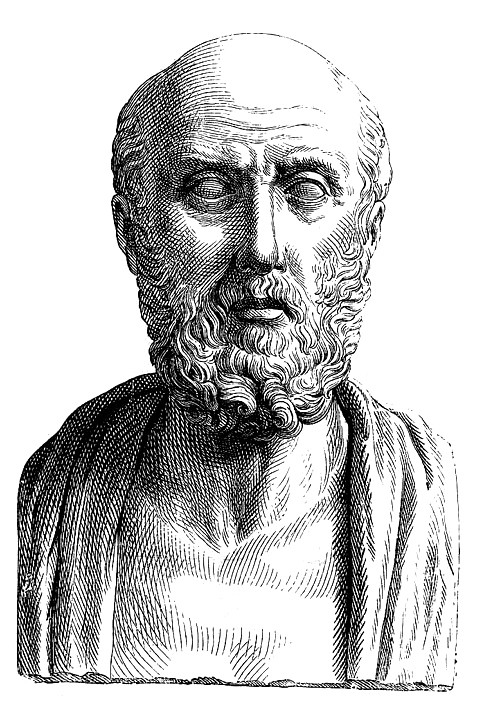The Guiding Principles of Naturopathic Medicine
What is naturopathic medicine? What is it exactly that a naturopath does?
Where did the tern “naturopath” come from and what does it really mean?
I was looking at some quotes by Hippocrates recently and began wondering whether our medical doctors still take the Hippocratic Oath. Does anyone know if they do?
That then led me to reflect on our “Naturopathic Principles” which are based on the teachings of Hippocrates, and how, in some cases, modern naturopathy, in the name of being legitimized by science, has lost some of our traditional ‘Nature Cure’ approach.
The term “naturopathy” was coined around 1892 to describe a rapidly growing system of natural therapeutics that drew from Hippocrates as well as the many traditional and indigenous medicines of the world.

Today’s naturopaths blend modern, science-based diagnostic and therapeutic procedures with ancient and traditional Nature Cure methods. Naturopathic medicine is defined by core principles rather than by methods or modalities.
These principles together comprise the philosophical foundation at the heart of the treatment modalities.
In fact, the reasons we make choices with Naturopathic treatments is more important than the different treatments themselves.
IT ISN’T WHAT WE GIVE, BUT WHY WE GIVE IT, THAT DEFINES NATUROPATHIC MEDICINE.
The core Naturopathic Principles include –
1. The Healing Power of Nature (Vis Medicatrix Naturae)
The body has an innate wisdom and ability to heal. Naturopaths act to identify and remove obstacles to recovery and to facilitate and support this natural healing ability by helping the patient create the conditions for health. This is done through focusing on diet and lifestyle factors that contribute to health and well-being.

2. Identify and Treat the Causes (Tolle Causam)
Illness does not occur without cause. Causes may originate in many areas. The goal with naturopathic medicine is always to identify and remove the underlying causes of illness rather than to eliminate or merely suppress symptoms. By discovering and addressing the underlying problem, the individual is able to experience healing on the deepest and most lasting level.
Symptoms can be expressions of the body’s attempt to defend itself, to adapt and recover, to heal itself, or may be results of the causes of disease.
3. First Do No Harm (Primum Non Nocere)
This principle is at the heart of holistic healing. This is a commitment to avoid any potentially detrimental treatment options and to support healing with the most gentle and effective means possible.
Naturopathic medicine follows three principles to avoid harming the patient:
- Utilize methods and medicinal substances which minimize the risk of harmful effects, and apply the least possible force or intervention necessary to diagnose illness and restore health.
- Whenever possible the suppression of symptoms is avoided as suppression generally interferes with the healing process.
- Acknowledge and respect the individual’s natural, innate, healing process, using the least force necessary to diagnose and treat illness.

4. Doctor as Teacher (Docere)
The original meaning of the word “doctor” is teacher.
A principal objective of naturopathic medicine is to educate the patient with information and alternatives along with an emphasis on self-responsibility. At the same time creating a nurturing support system to encourage growth through the process.
Naturopathic physicians also recognize and employ the therapeutic potential of the doctor-patient relationship.
5. Treat the Whole Person (Tolle totum)
Illness is not confined to physical complaints. Health and disease result from a complex of physical, mental, emotional, spiritual, genetic, environmental, social and other factors. Naturopathic medicine recognizes the harmonious functioning of all aspects of the individual as being essential to health. The multifactorial nature of health and disease requires a personalized and comprehensive approach to diagnosis and treatment. Naturopathic physicians treat the whole person, taking all of these factors into account. When the whole person is considered, healing can be profound and lasting.
6. Prevention (Praevenire)
The prevention of disease and the attainment of optimal health in patients are primary objectives of naturopathic medicine.
A focus on prevention encourages the adoption of healthy lifestyle choices that can reverse and/or hinder the development of these chronic diseases in the future.
Naturopathic physicians assess risk factors, heredity and susceptibility to disease, and make appropriate interventions in partnership with their patients to prevent illness. Naturopathic medicine asserts that one cannot be healthy in an unhealthy environment and is committed to the creation of a world in which humanity may thrive.
7. Wellness (Salutem et sanitatem)
Wellness follows the establishment and maintenance of optimum health and balance. Wellness is a state of being healthy, characterized by positive emotion, thought and action. Wellness is inherent in everyone, no matter what disease(s) is/are being experienced. If wellness is really recognized and experienced by an individual, it will more quickly heal a given disease than direct treatment of the disease alone. (This principle was adopted by Bastyr University and added to the six principles.)
Acknowledgement to AANP’s Definiton of Naturopathic Medicine & Bastyr University’s “What is Naturopathic Medicine?”
